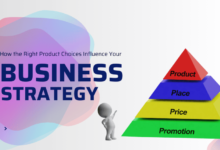This Is How to Value an eCommerce Business the Right Way

According to the United States Census Bureau, eCommerce businesses made an estimated $272.6 billion in the first quarter of 2023 alone. The online selling market is hot right now.
This has led a lot of business owners and investors to consider selling or buying eCommerce businesses. However, for either of these parties to make deals, valuation is essential. Unfortunately, learning how to value an eCommerce business involves a lot of different factors.
That’s why we made this eCommerce business tips guide. In it, we’ll walk you through what’s involved when determining what one of these online businesses is worth. That way, you can decide if it’s worth it to buy or sell it.
The Two Best Ways to Value Your eCommerce Business
When it comes to valuing your business there are two main methods used: SDE and EBITDA. If your business is worth less than $10 million, you’ll almost always use the SDE method.
If it’s worth more, then EBITDA is more effective. The rule holds unless you’re starting an eCommerce business that experienced an unprecedented amount of growth. In that case, you’ll usually use a mixture of both SDE and EBITDA.
1. SDE (or Seller’s Discretionary Earnings)
The formula for SDE is relatively simple to calculate. First, you’re going to take your gross revenue. Then, subtract from it both your operating costs and the overall cost of the goods sold.
Then, if the eCommerce business is operated by the owner you’ll add any compensation they make. This is important because it represents a discretionary cost.
That means that a new owner might choose to either reduce it or not pay it at all. If the owner is traveling a lot for business or paying for a lot of personal expenditures, then these costs should also be added back to the figure.
2. EBITDA (or Earnings Before Interest, Taxation, Depreciation, and Amortization)
The formula for EBITDA starts by subtracting your revenue from your expenses. Then, you’ll add any depreciation costs and amortization to the figure.
It’s important to note that with EBITDA you don’t add owner compensation back to the figure. With eCommerce businesses worth over $10 million this is considered a legitimate operating expense.
Other Factors That Can Affect Your Valuation
At this point, we have a rough valuation of the eCommerce business. However, to get a complete picture of the business you need to multiply the earnings found in the last section with the earnings multiple.
These various factors, which we’ll go into in this section, can often increase the value of the business by as much as 6x.
Financials
It should go without saying that financials are a crucial part of valuing a business. However, what aspects should you look at? At a bare minimum, you should be paying attention to things like:
- The age of the business
- Gross net income
- The ability to replicate the cost structure (for a new owner)
- Possible anomalies in the financial history
- Evergreen market demand
- Whether all revenue streams can be transferred to a new owner
- The stability of the earning powers
Combining all of these financial factors will give you a better idea of the current strength of the company.
Operations
This factor refers to how much of a role the owner has in the day-to-day operations of the job. If the owner is handling every aspect of the logistics, product development, marketing, and customer service, then it can quickly turn into a fifty-plus hour-per-week job.
This usually isn’t enticing for buyers. However, if they have a 3PL Company handling the logistics, then the eCommerce site will usually require twenty hours or less of an owner’s time. The less time an owner has to put into operations, the better.
Marketing
Just because an eCommerce business has put money into marketing doesn’t mean that it’s necessarily effective marketing. So how do you find out? The best way is to look at traffic.
Pay attention to the industry trends when it comes to traffic and compare it with the eCommerce site over the past year. You should also look closely at Google rankings.
This is essential when it comes to eCommerce sites. If a site isn’t ranking high on relevant search terms, it’s usually a good sign that the marketing hasn’t been effective.
Niche Market
Is the eCommerce market this business competitive? How many are like it? Are there any potential barriers to entering it?
These are all questions that should be asked. If there aren’t many other businesses like this one in a vibrant market, that can add a lot of value to successful companies.
Contact a Professional to Properly Value Your Business
It’s important to note that if you’re performing a valuation on your own it should only be viewed as a rough estimate. While it’s not hard to find a determination of earnings, the earnings multiple involves thousands of different data points.
As such, it will require a professional to get a more accurate picture. So what should you provide a professional valuation expert? Here are some essential documents to gather:
- Any financial statements
- Profit and loss statements
- Original business plan
- Accounts receivable (including an aging report)
- Tax returns
- Accounts payable
- Payroll documents
- A list of any fixed assets
- Any loan documents
- Your website traffic metrics
- Supplier agreements
If you can provide an expert with these documents it will give you a much better idea of what the eCommerce business is worth.
Appreciate Learning How to Value an eCommerce Business? Keep Exploring
We hope this business advice helped you learn how to value an eCommerce business. Whether you’re buying an eCommerce business or selling one, proper valuation is a vital part of the process.
Not only does it help determine the price tag, but it also reveals insights into the business model. For example, when looking at the value you can determine what is working and what needs improvement.
That way, you have the best chance possible of acquiring or selling a successful eCommerce property. Looking for more business advice. Keep scrolling through our website to find plenty of other resources just like this one.
Also read:






